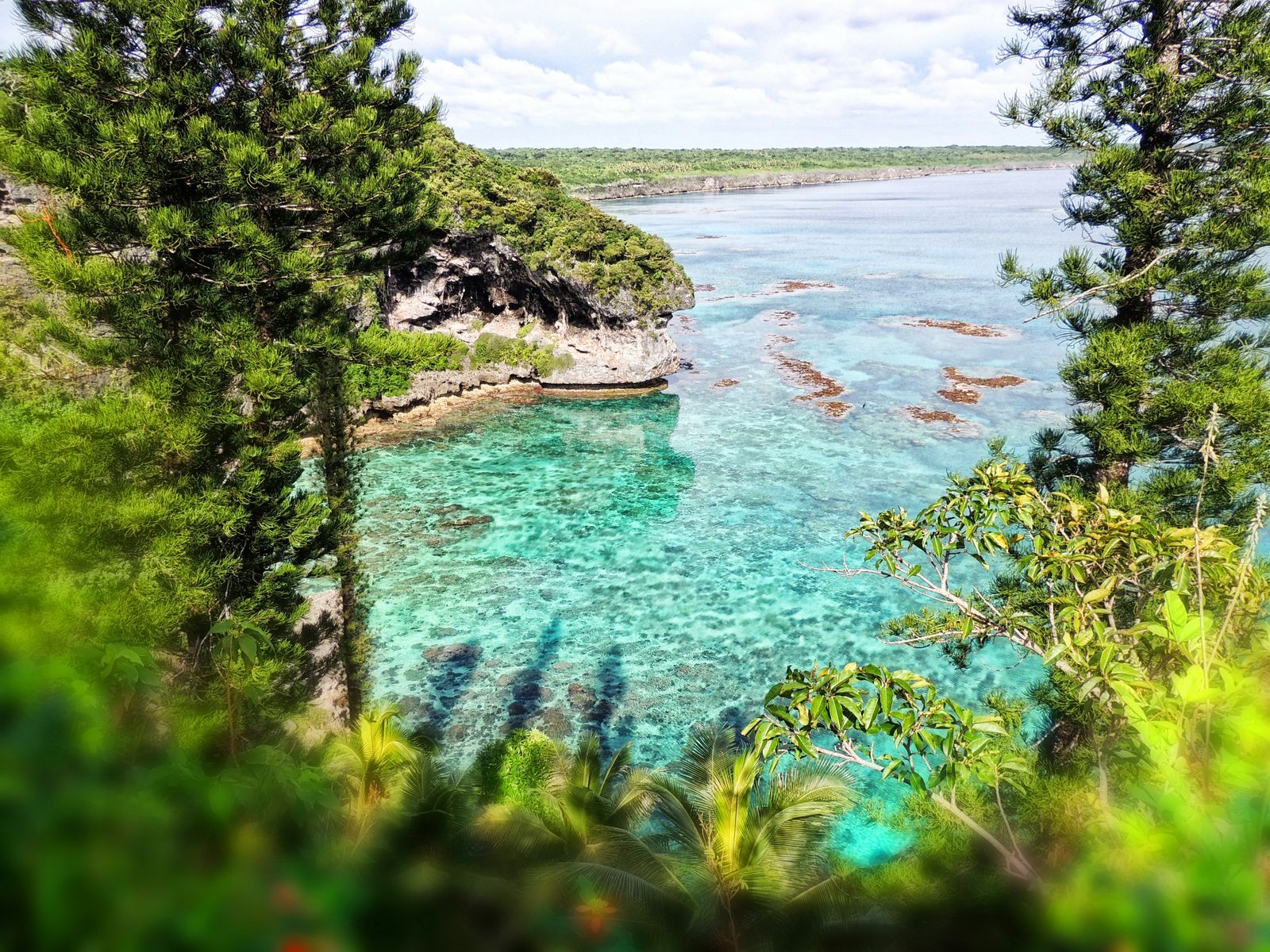New Caledonia quietly holds the force that could power the world’s green energy transition. With a modest population of 300,000, the French territory is the fourth-largest nickel producer in the world, holding seven percent of the world’s reserves. Increasingly, green metals are required to build a greener future with lower carbon infrastructure. Nickel fulfills this need, essential to a wide variety of clean energy technologies: geothermal, electrical vehicle batteries, hydrogen, hydro, wind, and solar power.
Nickel demand has already catapulted in economic and policy interest. From 2017 to 2022, demand for nickel rose by 40 percent. The European Union’s Critical Raw Materials Act, the United States’ Inflation Reduction Act, Australia’s Critical Minerals Strategy, and Canada’s Critical Minerals Strategy all aim to secure mineral supply chains while keeping up with this rapid increase in demand. These are just some of the 200 policies and regulations across 25 countries that secure mineral practices—100 of which have been enacted in the past few years.
However, the path towards ethically tapping into New Caledonia’s rich natural resources is far from straightforward. Mining development discourse revolves around three competing interests: large multinational extraction companies, international environmental groups, and indigenous nongovernmental organizations. The indigenous Kanak people have long claimed authority over the resources extracted from New Caledonia’s 33 mines, as part of a broader call for independence from France. This debate has effectively entangled nickel extraction, colonialism, and indigenous claims to sovereignty.
Three questions are especially pressing in resolving tensions surrounding sustainable development. First, how can New Caledonia strategically engage with the burgeoning nickel industry to both promote domestic prosperity and effectively combat climate change? Second, how can the territory navigate indigenous claims to these resources to ensuring an equitable resolution? Third, how can New Caledonia learn from other nations, such as the Democratic Republic of Congo, to evade the pitfalls of the “resource curse” and foster more democratic growth?
Unearthing the Nickel Industry
New Caledonia’s role as an economic mainstay in the nickel industry has become increasingly challenged by instability, rising competition, and environmental risk, threatening both local livelihoods and broader global green energy supplies. Two of the three metallurgical plants in the French territory are teetering on the brink of collapse, raising concerns about the potential precarity of an industry heavily reliant on this “green gold.” Furthermore, mining and trading giant Glencore recently decided to cease financing a nickel mine that had been operating at a loss due to increasing competition and high operating costs, adding to the territory’s economic woes. The closure of the mine, which is responsible for six percent of New Caledonia’s GDP, would not only impact the local economy but also further consolidate global nickel production in Indonesia, where Chinese companies largely control the supply chain.
At the same time as this precarity in New Caledonia, Indonesia is already emerging as a key leader in the growing industry, producing approximately 40.2 percent of the world’s nickel in 2023. The surge in Indonesian production, facilitated by significant investments in efficient plants with cost advantages in labor, power, and raw materials, has created a glut in the global nickel market. This oversupply has been exacerbated by a prolonged slump in nickel prices amid a sputtering global economy.
With this growth, international interest in the industry persists. Tesla, the world’s largest electric vehicle maker, has embarked on an ambitious strategy to directly source minerals, particularly nickel, to secure its supply chain. The company’s interest in Goro, the largest nickel mine in New Caledonia, is a critical test for international development. Recently, there were mixed indications of success: the mine has had to decrease production due to a leak from its tailings dam. Therefore, while the development of mining in New Caledonia seems initially appealing to international firms, they are frequently ill-equipped for the environmental risks brought on by development, potentially threatening the livelihoods of the native New Caledonian people.
Beyond the Tesla leak, the nickel industry holds global significance for the energy transition, yet its local impact on the land and natural resources of New Caledonia is detrimental. The industry’s development intensely threatens wildlife, including sharks, whales, and turtles, as well as the world’s third-largest population of dugongs (a sea cow). New Caledonia is also home to the world’s second-longest coral reef and largest lagoon, which was designated as a UNESCO World Heritage Site in 2008. Mining at sites across the territory has only increased natural soil erosion, and metals have spilled directly into coral reefs. Historically, these sediments blocked rivers to the point that farmland downstream was swallowed up and polluted the lagoon. Columns of red smoke have also emerged in the air as local ecosystems have suffered from wastewater discharges. At the same time that nickel promises a greener future, its production also ensures imminent costs on local ecosystems.
Revisiting the Past, Shaping the Future
While there are clear practical considerations as to whether New Caledonian nickel mines can be utilized as part of a future green economy, there are also conflicting claims over who possesses the authority to control the territory’s natural resource supply, given the territory’s unsettling colonial history.
Annexed by France in 1853, the development of New Caledonia, from mineral exploitation to the establishment of a penal colony, has long been tied to settler colonialism. These tensions continue as the pro-independence Kanak and Socialist National Liberation Front (FLNKS) leads the struggle for independence on behalf of the Kanaks, who make up over 40 percent of the New Caledonian population. As part of this effort, the 1998 Noumea Accord agreed to referendums on independence: three referendums over the last five years have all rejected independence, with ballots in 2018 and 2020 getting much closer.
Accompanying concerns over indigenous sovereignty is the enduring reality of economic disparities between the indigenous Kanak people and the broader New Caledonian population, which includes white descendants of European colonizers. Merely three percent of Kanaks pursue higher education, in striking contrast to the 23 percent participation rate among the rest of the population. Moreover, the Kanak community contends with a staggering 38 percent unemployment rate, a sharp difference from the 25 percent observed in the remaining population. Meeting the claims of the Kanak community then requires both greater control over nickel production and addressing the widespread disparities in educational and economic opportunities.
Legacies of indigenous oppression have left nickel operations to be the source of frequent labor strikes and political protests. In 2014, protestors damaged millions of dollars in vehicles, equipment, and buildings in response to a chemical spill at the Vale plant at Goro, which polluted a nearby river. Most recently, the “Solidarity meeting with the Kanak” people gathered in Paris to campaign for the release of five activists following a February clash with the police this year. Nickel operations get at an uncomfortable truth: while the material is renowned for its applications to electric vehicles, the mining process is often politically fraught and environmentally damaging.
Extracting Lessons from the Congo
Promoting such intense and unequal economic development through nickel also poses political challenges, as it can reinforce democratic backsliding and instability. This phenomenon, termed the “resource curse,” refers to the pattern in which, instead of a government using newfound revenue from a non-taxable source to promote social welfare, democratic backsliding occurs because the government does not need to collect revenue from citizens who would otherwise hold it responsible. This breakdown in accountability contributes to higher levels of conflict and lower economic growth. Research increasingly suggests that institutional quality (e.g. rule of law and electoral competition) plays a large role in whether this curse will play out. And, when the institutional history of a government is colonization, as in New Caledonia, the resulting persistence of disrupted representation creates fertile ground for a repressive regime to take root.
A prime example of this phenomenon is the Democratic Republic of Congo. The revenue generated by diamonds produced a corrupt, low-capacity government, and it provided funds for the nation’s rebels to sustain their war efforts, creating a state of constant instability. This issue is exacerbated by the fact that it was advantageous for Belgian colonial institutions to undermine, repress, and hinder the establishment of a robust, secure, and legitimate government, making such development under independence uniquely challenging. New Caledonia will face the same challenges, if not even greater, due to the so-called “green-washing” associated with metals, in which investors may justify such undemocratic developments to prevent the worst consequences of climate change. While consumers may find nickel, like the diamonds of the Congo, appealing, these products also bear the uncomfortable reality of being destructive to their source countries.
A Green Future?
Annual nickel supplies must grow from approximately 3.4 million tons currently to more than five million tons in 2030 to reach net-zero emissions. New Caledonia could play a crucial role in meeting this need, particularly given the adverse effects of climate change the territory will likely experience, such as coastal erosion, fires, and intense human suffering. In doing so, however, it faces economic, governmental, and ethnic issues that make confronting this risk even more uncomfortable.
And yet, there are still opportunities for ethical, sustainable development in the area. One pathway entails engaging with mining operators such as Koniambo Nickel SAS (KNS), not driven solely by commodification and industrial growth facilitated by tax exemptions, but rather by fostering solidarity-based subcontracting criteria and establishing a wealth fund for future generations. This approach aims to foster economic diversification by leveraging domestic authority and principles of intergenerational justice.
The recent agreement over the 2020 nickel plant sale, involving both local and international stakeholders, presents another potential template for such ethical development. By retaining majority local ownership through mechanisms like the involvement of salaried workers and the Société de Participation Minière du Sud Calédonien SAS (SPMSC), New Caledonia asserts control over its valuable resources while also addressing indigenous and independence concerns. This model could serve as a blueprint for future endeavors, ensuring that economic growth is not pursued at the expense of social and environmental well-being. Furthermore, by diversifying its client base and reducing dependence on single markets like China, New Caledonia can enhance its resilience to global economic shifts while contributing to the green transition essential for combating climate change.
Ultimately, as global demand for nickel rises alongside the imperative for cleaner energy, New Caledonia faces a critical moment. Such developments, however, also risk repeating a familiar pattern of environmental degradation, weakened institutions, and the marginalization of Kanak realities. Though the fate of New Caledonia’s nickel industry remains uncertain, its direction will determine whether green growth becomes a force for justice or a tool of extraction.





